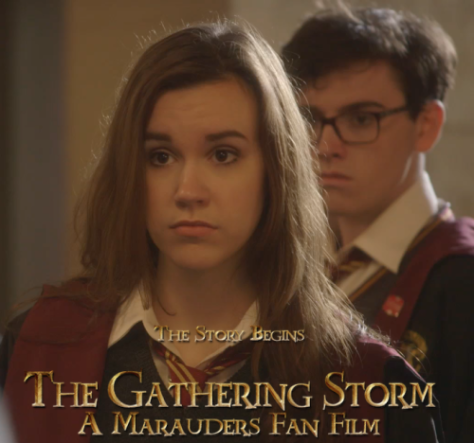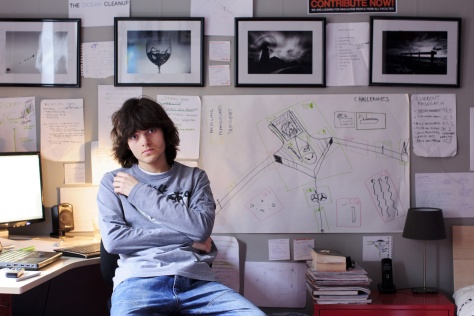A story told in screencaps and snapchats.
1. Constantly being asked about life in “London” no matter which city you’re in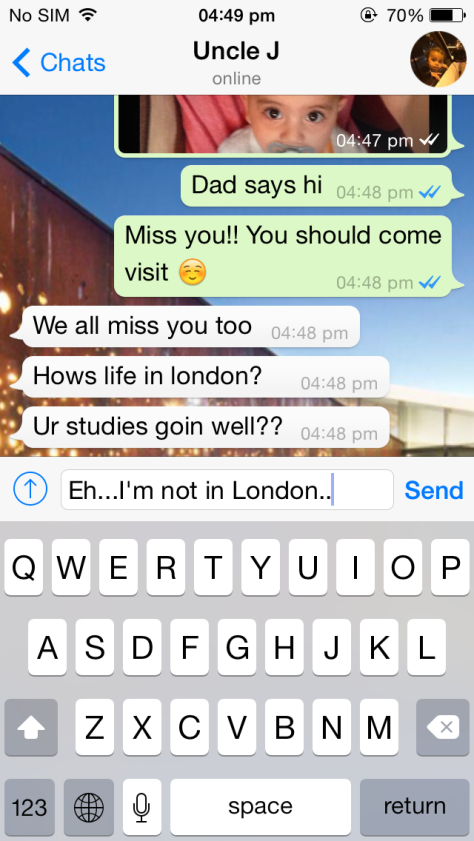 Whether you are actually in London or three hours away from it is irrelevant. To caring relatives and friends, all of England is also known as “London” and no amount of correction will change that.
Whether you are actually in London or three hours away from it is irrelevant. To caring relatives and friends, all of England is also known as “London” and no amount of correction will change that.
2. The inner party you have with yourself when you find food from your cultural background After living off fish and chips and burgers and fast food, running into something from back home is an occasion, and a big one at that.
After living off fish and chips and burgers and fast food, running into something from back home is an occasion, and a big one at that.
3. Constantly having to convert currencies to evaluate a possible purchase
 Because it’s easier to judge using the currency you grew up with, your math skills suddenly improve a lot when you find yourself doing conversions in your head if you’re too lazy to use those handy apps on your phone.
Because it’s easier to judge using the currency you grew up with, your math skills suddenly improve a lot when you find yourself doing conversions in your head if you’re too lazy to use those handy apps on your phone.
4. Having the heaviest luggage on your way back from home because your mum insists on sending everything with you.
 Relax, mum. I’m sure they have milk where I’m going. And tissues. And painkillers. Please, the bag isn’t closing anymore, please stop buying things for me.
Relax, mum. I’m sure they have milk where I’m going. And tissues. And painkillers. Please, the bag isn’t closing anymore, please stop buying things for me.
5. The amount of times you almost walked into moving traffic is embarrassing.
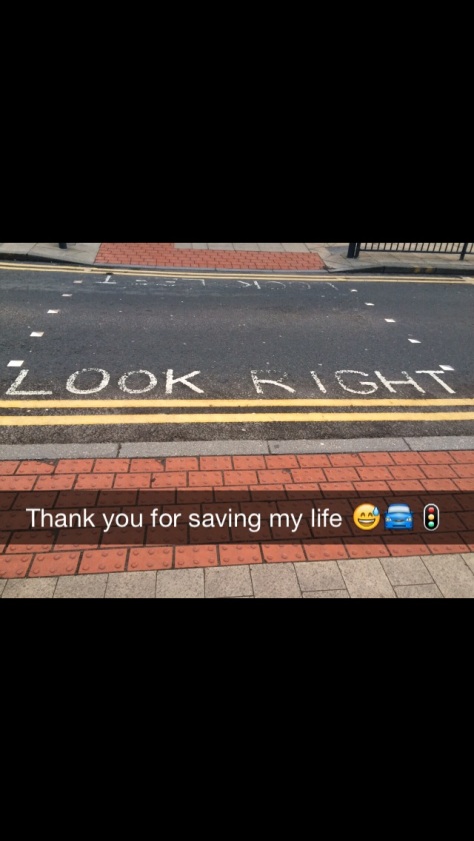 Unless you’re from the few countries that drive on the right side of the road, you’re used to looking to the left for oncoming traffic. At least that’s the case with me. Alternatively, thinking you’ve just witnessed a smart car driving itself, then realising that you’re just staring at the empty passenger seat, because the driver’s on the right. Oh.
Unless you’re from the few countries that drive on the right side of the road, you’re used to looking to the left for oncoming traffic. At least that’s the case with me. Alternatively, thinking you’ve just witnessed a smart car driving itself, then realising that you’re just staring at the empty passenger seat, because the driver’s on the right. Oh.
6. Resisting the urge to jump into conversation with any stranger speaking your native tongue
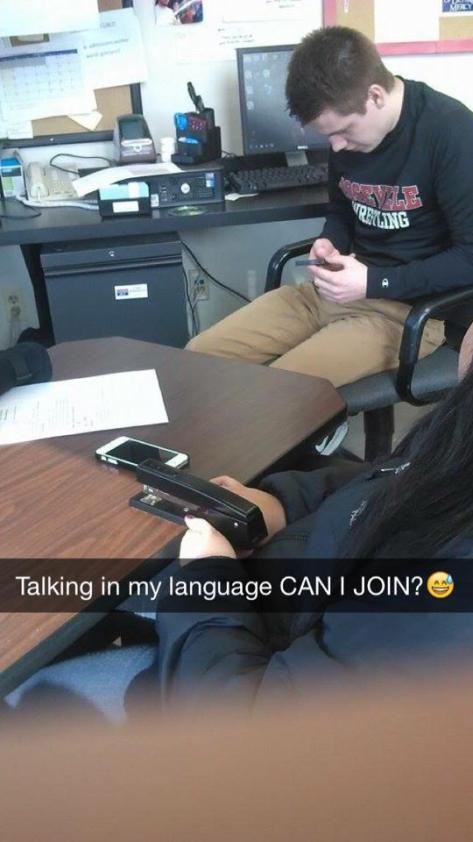 Hearing a few words in your language is enough to send your head whipping around to find the source. Taking creepy shots of people who you overheard speaking your native language is totally normal, right? I just miss hearing those words, please talk to me, a complete stranger who can’t help eavesdropping..
Hearing a few words in your language is enough to send your head whipping around to find the source. Taking creepy shots of people who you overheard speaking your native language is totally normal, right? I just miss hearing those words, please talk to me, a complete stranger who can’t help eavesdropping..
7. Having to adjust to language differences over simple terms
“Excuse me I wanted chips?” “These are chips.” Happened to all of us. Probably several times. You eventually get used to it, and soon words like ‘quid, cheers, loads, lift, telly, etc’ slowly slip into your vocabulary. Then you go home and have to recalibrate all over again.
8. Going home ‘for the weekend’ is out of the question
 Of course, a plane would be more convenient, but a quick cost-benefit analysis will show that it’s probably (definitely) not worth it. Unless you own a private jet, in which case, by all means, go home every weekend.
Of course, a plane would be more convenient, but a quick cost-benefit analysis will show that it’s probably (definitely) not worth it. Unless you own a private jet, in which case, by all means, go home every weekend.
9. The first few times being called ‘love’ by complete strangers were.. odd.
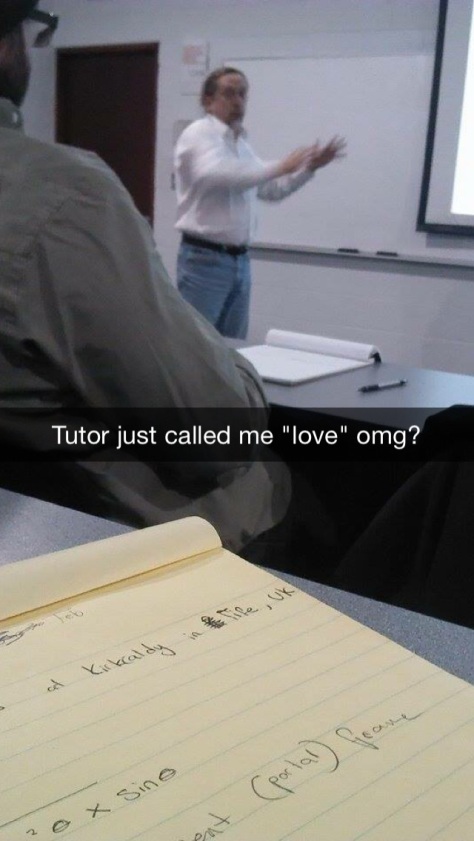 Nothing says “culture shock” like the double-take you experience when your tutor, or a cashier, or a taxi driver call you ‘love’. It’s rather sweet once you get used to it, but this isn’t common practice where you’re from so it’s funny when stereotypes you’ve seen on TV turn out to be true to life.
Nothing says “culture shock” like the double-take you experience when your tutor, or a cashier, or a taxi driver call you ‘love’. It’s rather sweet once you get used to it, but this isn’t common practice where you’re from so it’s funny when stereotypes you’ve seen on TV turn out to be true to life.
10. Having almost too many video and free calling apps on your phone
 Video calls and international phone calls are a part of your life. So you download any and all of the apps you can find, because if one app crashes, you can just use the other. Plus, it feels better to have many. Just in case.
Video calls and international phone calls are a part of your life. So you download any and all of the apps you can find, because if one app crashes, you can just use the other. Plus, it feels better to have many. Just in case.
(No product placement was intended anywhere in this article.)
Got any funny (or not so funny) experiences of your own? Comment and let me know what you think!


